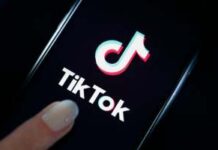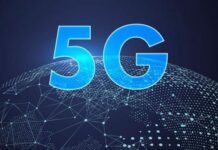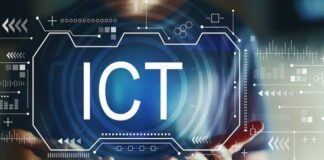Towards Achieving 95% Digital Literacy in Nigeria by 2030
By Shuaib Shuaib Agaka
The Director General of National Information Technology Development Agency (NITDA), Kashifu Inuwa has reiterated his agency’s commitment in collaborating with key partners to achieve 95% digital literacy coverage in Nigeria by 2030. Kashifu Inuwa, NITDA,
He made the affirmation at programme hosted by e-health Africa, emphasizing the need for collective efforts to implement impactful digital initiatives.
There is no doubt in saying that digital literacy stands at the forefront of global progress, serving as the backbone for socio-economic development in the digital age.
As a result , countries worldwide consistently seek ways to enhance their capabilities and harness the full potential of technology in various daily activities.
Nigeria was also not left back in this frantic race as this prompted the NITDA, the pioneer in technological advancement in Nigeria, to ambitiously envision achieving 95% digital literacy by 2030.
It is not merely a goal but a transformative journey. As NITDA embarks on this road, the challenges and opportunities that lie ahead shape a narrative that extends far beyond the boundaries of technology, touching the very essence of Nigeria’s future.
In today’s connected world, digital literacy is the pillar that empowers individuals, communities, and nations to handle the challenges of the digital era. It is a passport to inclusion, a catalyst for innovation, and a driver of economic growth.
Nigeria’s aspiration to attain 95% digital literacy by the 2030 close underscores a profound commitment to equipping its citizens with the skills and knowledge necessary to thrive in the digital realm. However, this journey is not devoid of hurdles which need to be addressed for the vision to be realized.
The hurdles range from Infrastructure barriers; urban-rural technology differences, educational landscape, and socio-economic factors, including the affordability of digital devices and internet services. Moreover, awareness and perceptions surrounding digital literacy require refined strategies to dispel myths and create an understanding of its transformative potential.
In the pursuit of 95% digital literacy in Nigeria, a significant stumbling block arises from the challenges surrounding the infrastructure between urban and rural areas, contributing to an uneven distribution of digital resources. Urban centres often enjoy better connectivity and access to digital tools than their rural counterparts. Of course, the urban residents alone can’t make up 95% of the Nigerian population, which implies the rural residents must also be heavily involved.
Read Also:
Not just that, also, the integration of digital literacy into the formal education system remains a challenge as well. Many educational institutions lack the necessary infrastructure, such as computers and software to facilitate meaningful digital education. In a situation where schools do have access to these resources, there is often a scarcity of updated and relevant educational content.
Furthermore, the effective blending of digital learning into the curriculum largely depends on how skilled educators are in using these tools. Regrettably, many teachers lack the necessary training to seamlessly include digital tools in their teaching methods. The fast-paced changes in technology make this challenge even more difficult, as educators find it challenging to keep up with the latest advancements.
Also, affordability or provision of digital tools is also one of the hurdles. The cost of digital devices, to be used to attain digital literacy, including computers and smartphones, is not something 95% of Nigerians can afford. While the digital age has ushered in a wealth of opportunities, the expense associated with acquiring computers and smartphones serves as a challenge, particularly for those in lower-income brackets.
Yet, potential solutions involve setting up more community technology centres that come equipped with computers and internet access. These centres can offer a place for people, especially those without personal devices, with a space to improve their digital skills.
Furthermore, exploring e-waste recycling programs can be a sustainable approach. Repurposing and redistributing refurbished devices will make digital tools to be affordable for a broader segment of the population.
Moreso, if possible, the implementation of policies that subsidize the cost of digital devices for low-income individuals will be a crucial step. Government-backed initiatives or collaborations with private sector entities can help make devices more accessible.
The last hurdle worth noting is the lack of awareness of the potential of digital literacy. The broader population does not fully comprehend the transformative potential of digital literacy. Some individuals, influenced by misconceptions, view digital literacy as irrelevant to their daily lives or too complex to grasp.
Consequently, there is a need for National awareness campaigns, local language outreach, hands-on demonstrations, storytelling and success narratives, and collaboration with media outlets. If all of these can be done, the lack of awareness of the potential of digital literacy will definitely be solved, as a result, significant participation and improvement in acquiring digital skills will soar up.
Therefore, For the vision to be achievable and be a widespread benefit, all these challenges must be solved. Because the goal of reaching 95% proficiency by 2030 represents more than just an objective; it signifies a significant journey of transformation. This digital vision seeks to redefine Nigeria’s socio-economic landscape, aiming to make digital literacy accessible to all, turning it into a tool for widespread progress rather than a limited privilege.
The vision to achieve 95% digital illiteracy by 2030 is not just the responsibility of the government bodies, but it is also the responsibility of educational institutions, civil society, and individuals to unite in shaping Nigeria into a digitally empowered nation.
Agaka, an NYSC member, writes from PRNigeria Center, Kano.




















